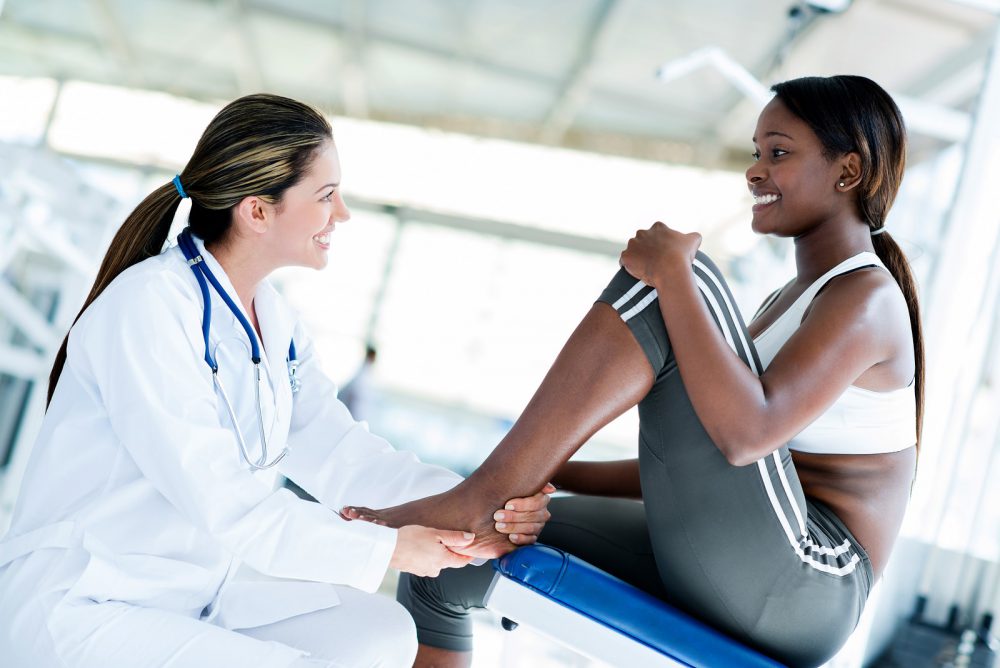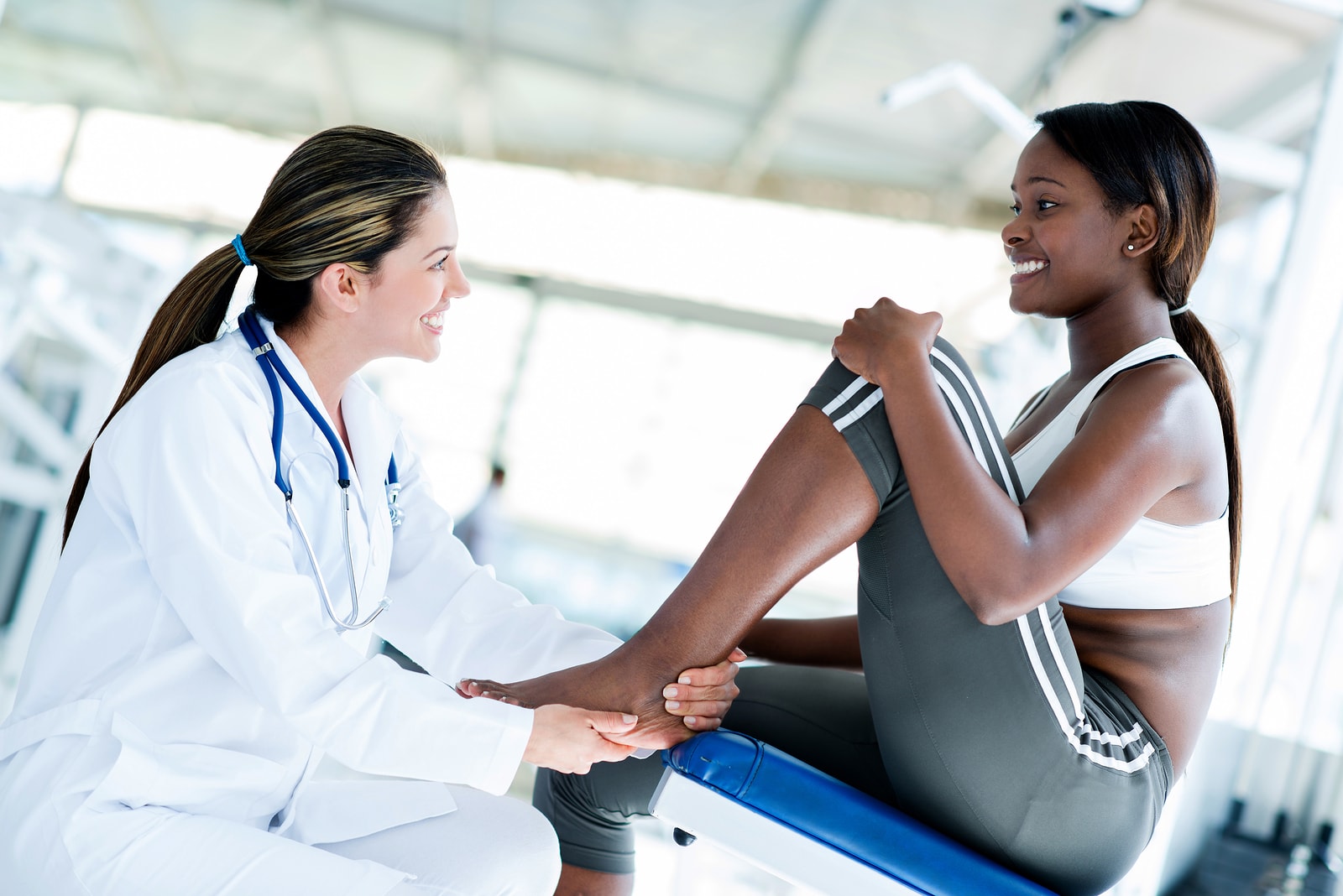
Primary care sports medicine physicians are trained medical professionals who specialize in the treatment and care of those who are physically active. They help treat acute injuries, acute illnesses, nutrition issues, stress fractures, tendonitis and other athletically-associated infirmities. If necessary, they work closely with orthopedic surgeons to help ensure their patients’ needs and expectations are met, should surgery be required.
Typical Work Responsibilities
A good portion of a primary care sports medicine physician’s day is typically spent obtaining information in various forms. That involves observing and talking directly with patients, associating with supervisors and peers and analyzing charts and medical histories.
However, this job is about communication and relationship building. Much of a physician’s work requires working with teams and subordinates. More so, each patient is unique and requires individualized treatment; in order to offer the most accurate and helpful treatments, physicians must form communication-based relationships with their teams and patients.
Work Environment
Despite the outdoor nature of sports, a primary care sports medicine physician generally spends the majority of their time indoors working face-to-face with patients and other medical professionals. The work environment can be high-stress and fast-paced, leaving most physicians exposed to disease or infections every single day.
However, for individuals who love to be challenged, primary care sports medicine physicians have an opportunity to treat a wide array of ailments, ranging from traumatic brain injuries to tendonitis to asthma. The job offers a tremendous opportunity to help active people get back on their feet and regain their health.
Skills and Qualities
A good primary care sports medicine physician typically excels at listening to patients and thinking critically about each patient’s unique situation. This involves complex problem solving, a vast knowledge of human anatomy and physiology and the ability to pinpoint the treatment that’s best suited for each individual.
It’s also important to use good judgment to make safe and reasonable decisions. When prescribing rehabilitation plans to ailing patients, their lifestyle, age, infirmity and medical history all should be carefully considered before settling on a plan of action. The accuracy of these prescriptions, in many cases, is imperative to the patient’s future health.
You Might Also Enjoy: Link Between Blood Tests & Head Trauma to Detect Concussion Symptoms
Education and Training Requirements
Many primary care sports medicine doctors start out in family medicine, pediatrics, internal medicine or rehabilitation medicine. After a residency in medical school, a doctor can move into the sports medicine field. During this shift, the doctor can apply for a one- or two-year sports medicine fellowship program, in which they will begin to specialize in sports-related injuries and illnesses. Part of this fellowship can be spent training on the job, or serving as a team doctor for high school or college athletic programs.
Primary care doctors who have completed their fellowships are also required to pass an exam for their Certificate of Added Qualifications in sports medicine, which entails the musculoskeletal side of sports injuries.
Salary and Job Outlook
Through 2022, the U.S. Bureau of Labor Statistics predicted an expected growth rate between 15% and 21% for the position, with an estimated 152,600 jobs coming available. Median wages, calculated back in 2014, approximate a primary care sports medicine physician’s yearly salary at more than $187,000.
Overall, the job requires a tremendous amount of education and commitment. It’s designed to treat athletes, and it’s most optimally performed by individuals who have the same passion and drive for medicine as the patients do for sports and activity. Those who love sports and athletics, but are more passionate about working with people in need, stand to do well in this position.









